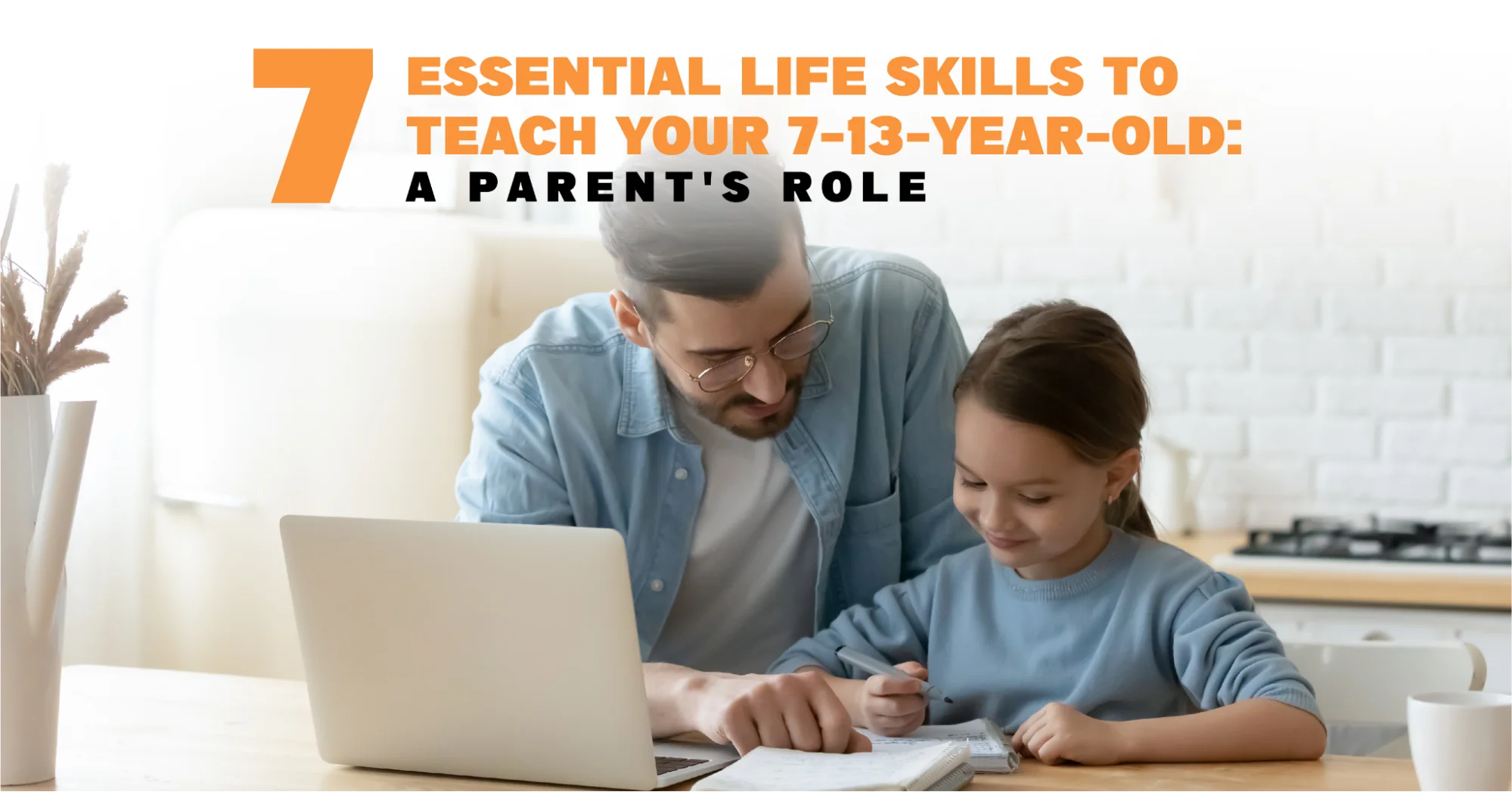
We should teach our children basic life skills in the same way that we teach them basic skills like walking and talking. They may use them in both their personal and professional lives when making decisions at various stages in their lives.
As parents, we must instill these Essential Life Skills in our children as early as possible so that they can manage real-world situations until they reach high school.
There are a variety of life skills for kids that may be learned. However, learning all of them may look overwhelming and exhausting, so don’t worry. We should take baby steps to make life skills learning easier and more fun.
A study aimed to analyze views about everyday life skills.
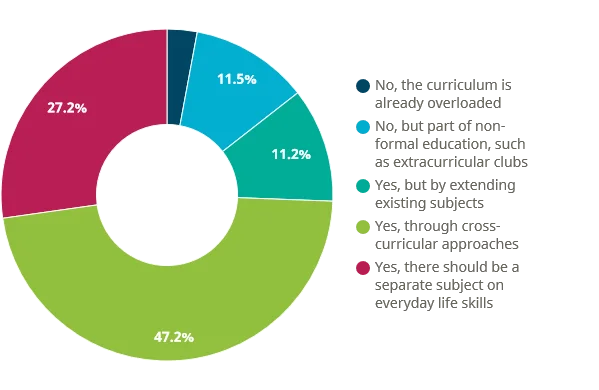
This also begs the question, what are the 7 essential life skills that kids should learn? In this blog, we’ll focus on seven unique life skills for kids.
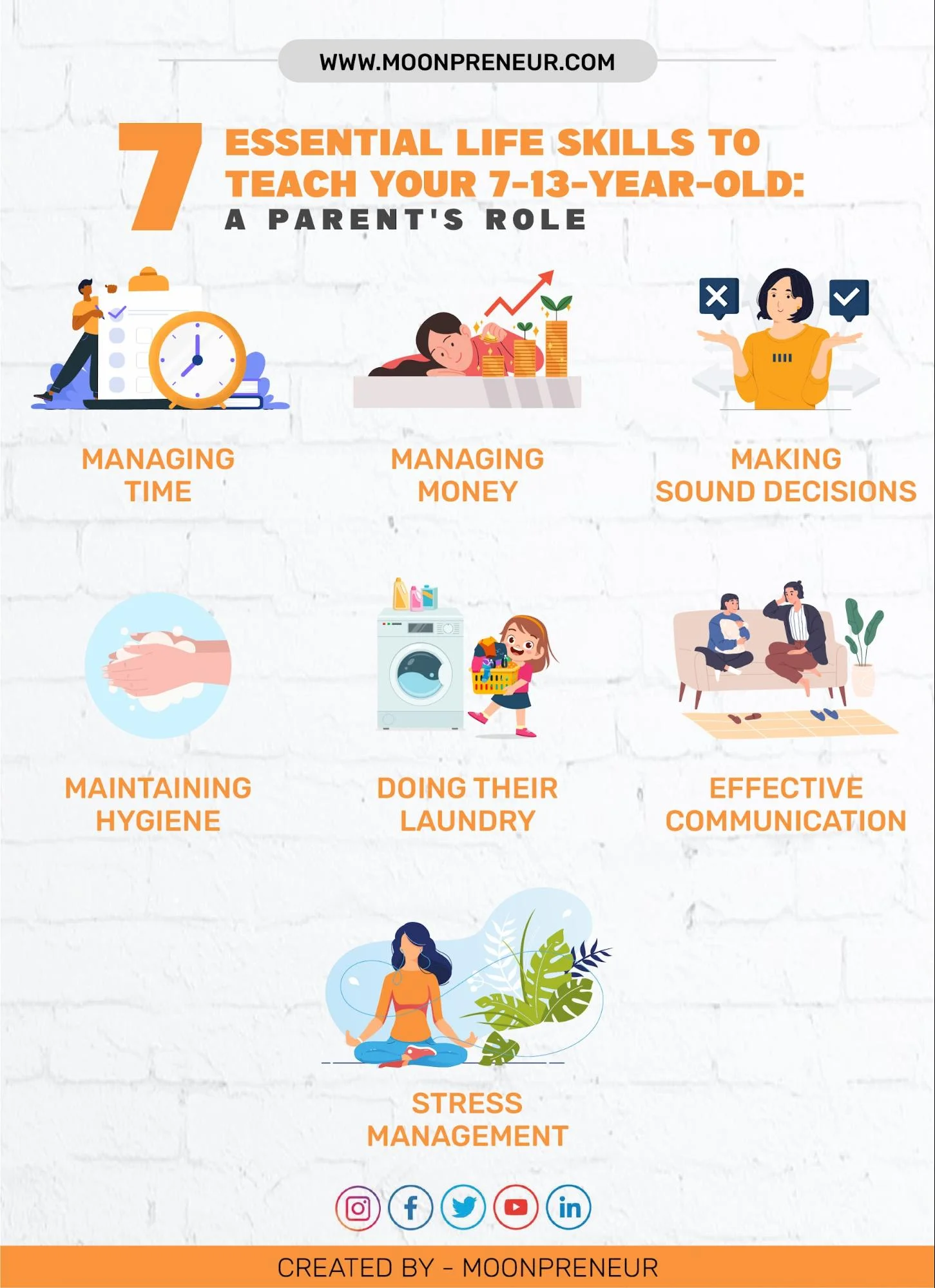
1. Managing Time

Half the battle is won if you can manage your time well. Setting objectives, prioritizing work, creating timetables, and sticking to them are all elements of time management. Begin by teaching youngsters to create a timetable and encouraging them to adhere to it regularly. Goal setting and task prioritization should come next.
So, teaching children the value of managing their time is crucial.
It will make your life easier if your children learn to manage their time. As a result, you must educate your children on how to manage their time, stay focused, and stick to a schedule. In the long term, developing skills for kids will equip them with valuable life skills, enabling them to accomplish larger goals.
2. Managing Money

A report found that Americans lost $415 billion due to low financial literacy. So, it is true that many people struggle with money management. You may protect your children from financial difficulties by supporting them in preparing for the day when they start earning their money by teaching them about money, its value, and how to manage it from a young age.
Teaching life skills to 12-year-olds, such as money management, can help them develop a strong foundation for financial responsibility and independence. You can start teaching them by using the latest and most effective apps that help in teaching children about personal finances. Some of the popular apps include World of Money, Zogo, Investmate, etc.
Apart from teaching them money management skills, you must sensitize them to essential life skills such as how to use checks, credit cards, and cash applications.
3. Making Sound Decisions

Decision-making skills are essential for one to thrive in the future of work.
Originated: Decision Education Foundation
Kids should start learning how to make sound decisions at an early age. One can master this basic life skill through trial and error. Start with simple options like vanilla versus chocolate ice cream, blue socks versus white socks, and trains versus vehicles to play.
When children are old enough to attend elementary school, they can start learning about the benefits of making good choices and the consequences of making poor ones.
This discussion on https://wol.iza.org/ examines whether education improves adolescents’ life skills, presenting positive evidence while stressing the importance of establishing clearer frameworks to identify, measure, and incorporate these skills into curricula.
4. Effective Communication
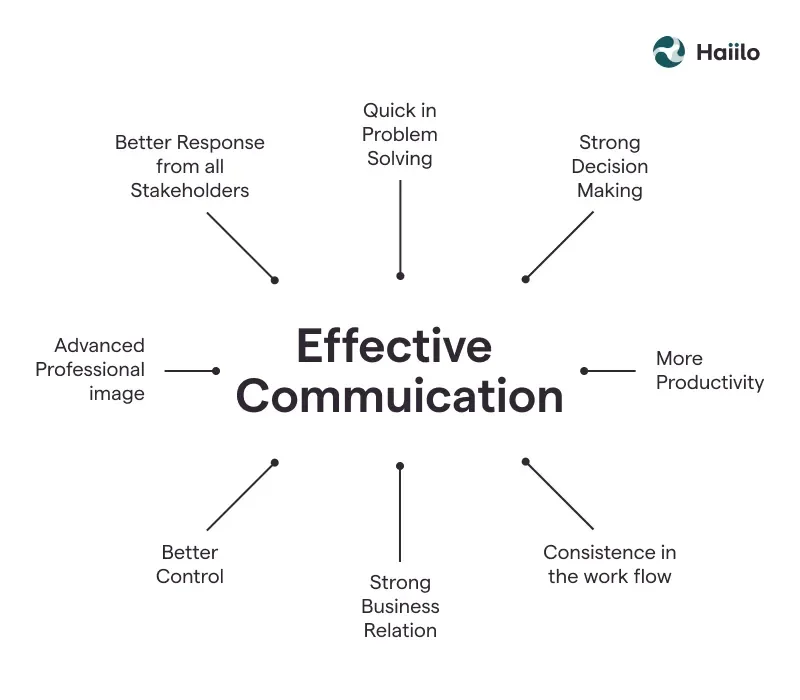
Originated: Haiilo
For children to be able to communicate effectively at home and school, they must learn how to express themselves clearly at a young age. Few people realize that being a good listener is an essential component of effective communication. As a result, you must educate youngsters to listen closely and exhibit empathy for people around them who may be having emotional or other problems.
Talking with your child about their daily experiences and paying close attention when they wish to speak will aid in the development of their communication abilities.
5. Stress Management
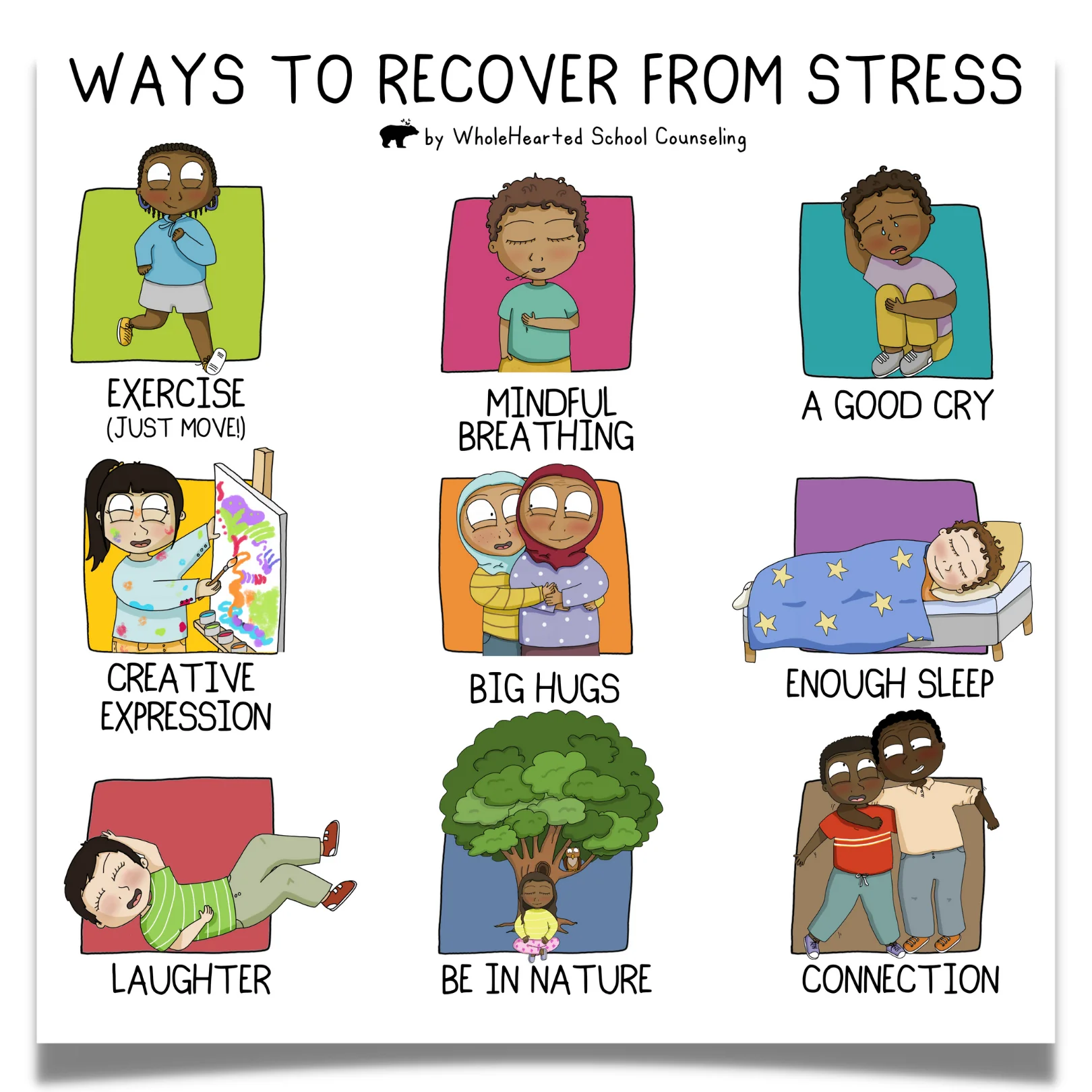
Originated: WholeHearted
All kids should learn how to manage stress since it’s an important life skill for kids and because it is prevalent in today’s society. They must learn how to handle challenging circumstances, like failing an exam or getting into a fight at school. Additionally, kids need to learn how to look after their emotional strength when things get tough and they are unsure of what to do.
6. Maintaining Hygiene
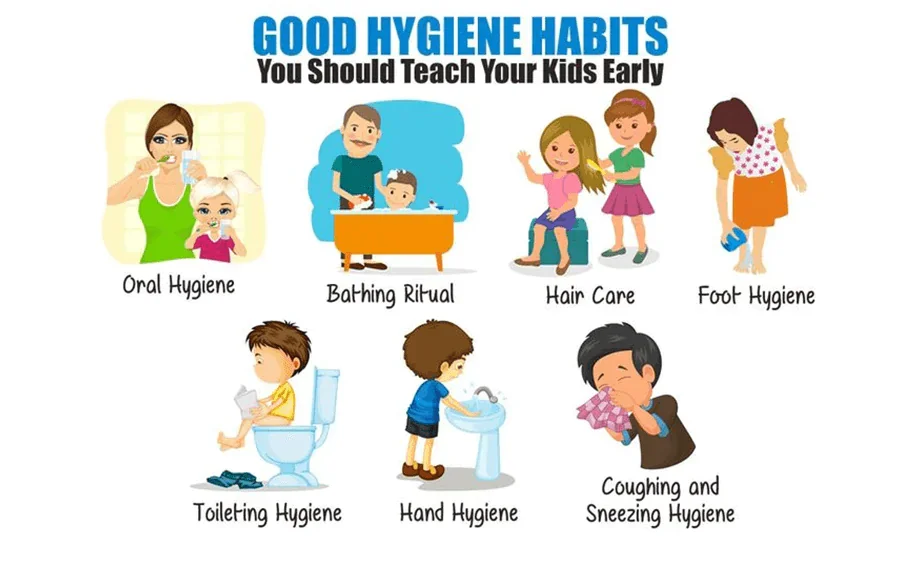
Originated: Goodk’night
It’s never too early for your kids to start learning about health and hygiene. We constantly remind our children to bathe, brush their teeth, wash their hands, and change their underwear as we rush through our busy days. But we never explain to them why.
Tell your children why maintaining good health and hygiene will always be important components of their daily lives. Create a chart that will allow your kids to cross off each assignment as they finish it when they start learning about this essential life skill. You can remove the chart after these good habits are formed and your children will carry out the tasks without your constant reminders.
7. Doing Their Laundry
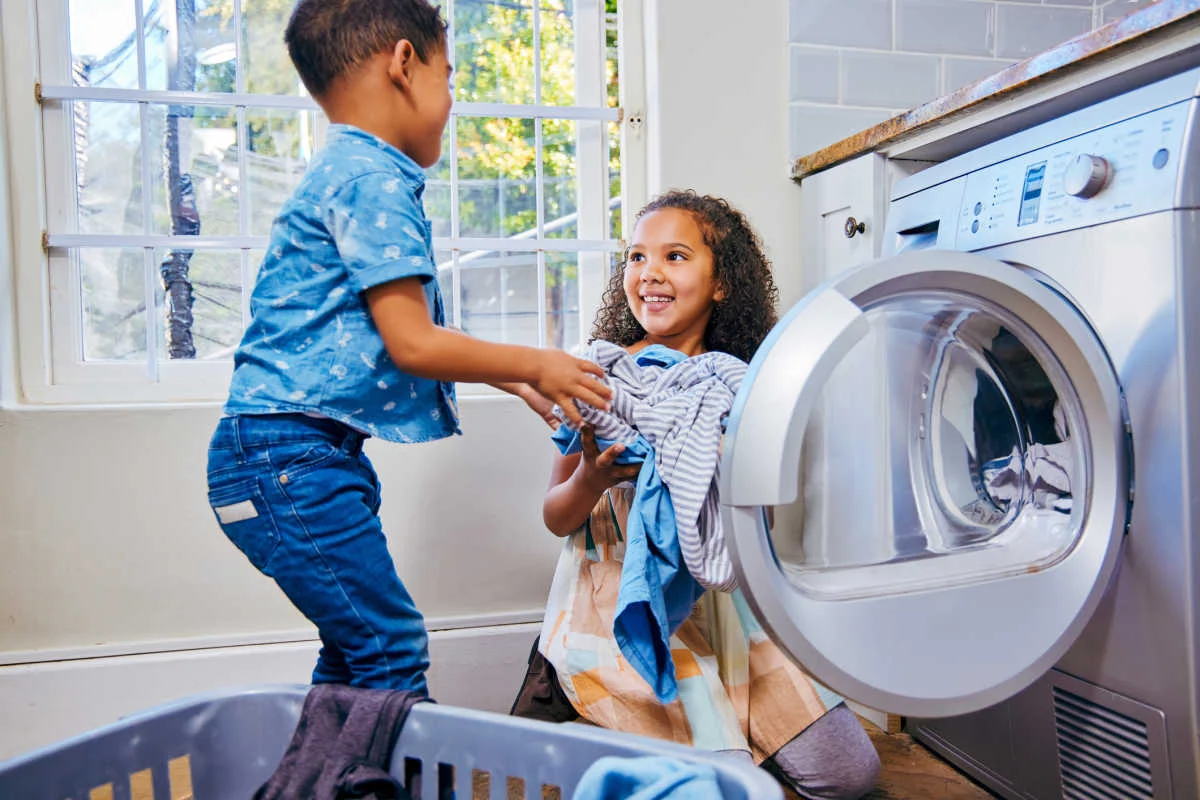
Learning to do laundry is one of the most essential life skills. A life skill that will benefit both you and your children is teaching them how to wash, fold, and put away their laundry. When they assist you with laundry, kids can pick up valuable skills like picking out colors and texture understanding.
They can begin transferring the clothing from the washer to the dryer as they get older. Children in elementary school can then learn how to use the washer, and dryer, and how much laundry detergent is required. This way they’ll soon learn to manage all of their laundry on their own.
By introducing your child to various relaxation techniques, such as deep breathing or meditation, you can aid them in learning how to manage stress. To assist them in feeling better and being in better health overall, you may also urge them to exercise and eat healthily.
Looking for a comprehensive parenting guide to ensure you are on the right track? Explore a wealth of parenting wisdom and educational insights in Moonpreneur’s blogs. Additionally, you can join our programs that nurture the next generation of innovators. Book a free trial now!
Update: This article was last updated on 3rd December 2024 to reflect the accuracy and up-to-date information on the page.




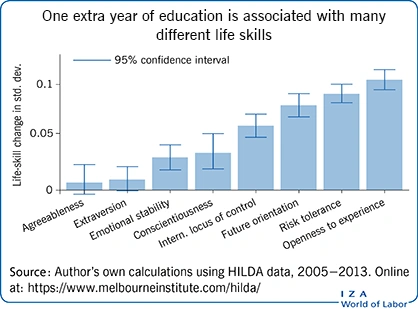






















why is it important to teach life skills to kids at young age
Teaching life skills to children at an early age helps shape their goals and foster informed and rational decision-making.
What are the benefits of life skills for kids?
It contributes to the development of crucial skills, including enhanced personality, adaptability, and the ability to navigate social norms.
It’s not Just parents who need to put in all the effort, it is natural for kids to learn from things and experiences of life.
Kids learn from observing exactly what people around them do.
Kids learn from observing exactly what people around them do.
Empathy, social / emotional intelligence, confidence, and public speaking skills are extremely useful but they’re never taken seriously as important skills to be taught. They are assumed to be self-learnt.